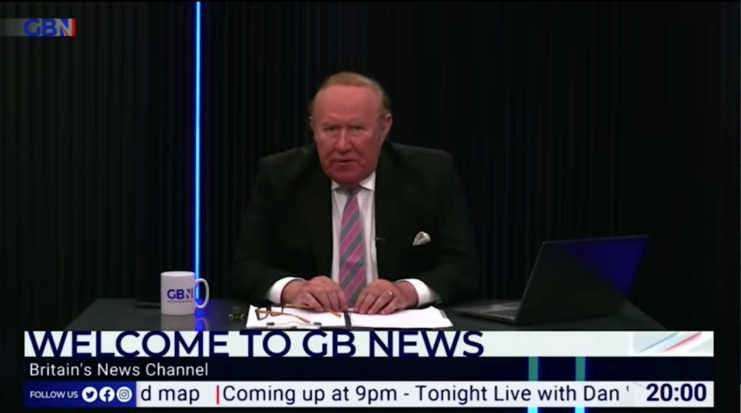GB News has been ‘cancelled’ and made a roaring success out of it

In less than a week, GB News has achieved what it set out to do.
In his opening introduction, Andrew Neil vowed to expose “cancel culture” and focus on the news that matters to people outside of the “Westminster bubble”.
Right on cue, a host of companies from Octopus Energy to the cider firm Kopparberg began pulling their advertising on the channel. Ikea, only hours after being fined €1million for spying on their own employees, claimed the news channel was not in line with its “humanistic values”.
So case closed for GB News: cancel culture is an evil stain on society attempting to drown out dissenting voices by starving them of advertising money. Those who diligently fight the culture wars threw themselves at the barricades and tuned into GB News and those curious as to what the fuss was about turned it on too. Either way, only days after launch, GB News had achieved the holy grail status of “cancelled”, thus ensuring its survival.
This has always been a curious and well-documented feature of cancel culture: the more someone is cancelled or de-platformed, the more likely it is they will find a platform elsewhere, someone to give them a voice.
Could you envisage a more perfect way to get people to watch a TV channel than by telling them not to watch it? It would be a surprise to almost no one if the whole row was revealed to be little more than an elaborate PR stunt designed to, as Neil says, “puncture the pomposity of our elites in business, politics, media and academia.”
The success story for GB News did not end there: the advertising boycott was, logically, followed by a boycott of the boycotters. Those warriors of free speech furiously scrawled over their decidedly un-cancelled twitter accounts, screaming at Octopus and their ilk for trying to silence the newcomer, the scrappy underdog.
Even the slew of mortifying on-air disasters helped bring GB News more and more viewers. After promising to leave the “echo chamber” of the “metropolitan mindset”, Neil found himself in an echo chamber of a different kind, as the broadcaster experienced significant sound issues. Microphones cut out, the audio was delayed and presenters’ voices reverberated around the studio in what would have been a very good re-enactment of the giant snake in the second Harry Potter movie, who haunts the Hogwarts plumbing system whispering threats in the dead of night.
Meanwhile, a dedicated selection of trolls started texting in as “Mike Hunt”, “Mike Oxlong” and “Cleo Torez” (read a loud). In what was dubbed by Times Radio presenter Stig Abell as an excellent rendition of a “supply school teacher”, Simon McCoy told the pranksters to “grow up” and warned “I’m watching you”.
All this did was add credence to GB News’ portrayal of itself as a “young, scrappy and hungry” Alexander Hamilton-esque character.
It also prompted the creation of a twitter account, GBNews Fails, dedicated to the blunders. At the time of writing, it has over 40,000 followers, only two days after starting. That’s tens of thousands of people watching an on-air blooper reel, but watching GB News all the same.
It’s a PR lesson for the ages: Cancel culture sells. Those determined to undermine the success of GB News have cemented its place in the media landscape.
